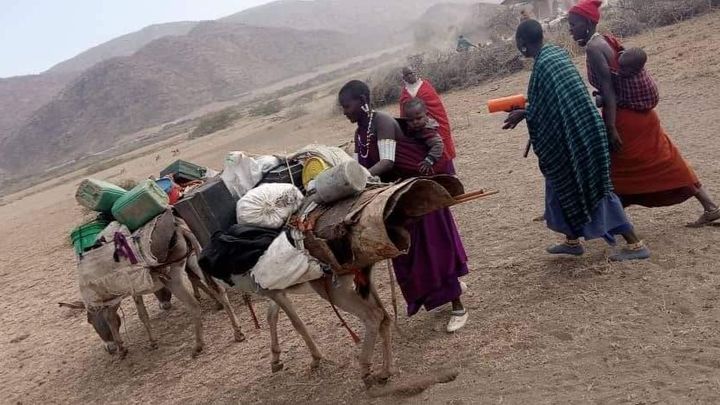
Support displaced Maasai families of Loliondo
Donation protected


The eviction of 70,000 Maasai people from their ancestral land in Loliondo, Tanzania, in June 2022, has had devastating consequences for the community. The Maasai have lived in the area for generations, relying on the land and their livestock for their livelihoods. However, in recent years, the Tanzanian government has sought to evict the Maasai from their ancestral land in order to make way for conservation areas and tourism projects.
The eviction was carried out with force and without proper compensation or consultation with the community. As a result, many Maasai families lost their homes, their livestock, and their access to water sources. This has led to extreme poverty, famine, and hunger in the area. The Maasai have been forced to rely on food aid and handouts from NGOs in order to survive, as their traditional way of life has been destroyed.
The loss of their land has also had a devastating impact on the Maasai culture and way of life. The Maasai have a deep connection to their land and their livestock, and their traditional practices and customs are closely tied to their environment. The loss of their land has led to the erosion of their traditional knowledge and practices, and has left many Maasai feeling disconnected from their heritage.
The eviction of the Maasai from their ancestral land in Loliondo is a tragic example of the devastating impact that land grabs and forced displacement can have on communities. The Maasai people have been left to struggle with poverty, hunger, and cultural loss, and their plight serves as a reminder of the importance of protecting the rights of indigenous communities and the environment they depend on.
It is crucial to provide support to the Maasai community to help them overcome the impact of the eviction from their ancestral land in Loliondo. The Maasai have suffered greatly as a result of the eviction, and they require assistance to rebuild their lives and regain their independence and dignity.
One important area of support is in providing access to food and water, as the eviction has left many Maasai families without a reliable source of income or access to basic necessities. Providing food aid and support for sustainable agriculture can help to address immediate needs and support long-term food security.
Another area of support is in providing access to education and healthcare. Education can help to equip the Maasai with the skills and knowledge they need to succeed in a rapidly changing world, while healthcare can help to address the physical and mental health issues that often arise in situations of displacement and trauma.
It is also important to support the Maasai in their efforts to regain access to their traditional lands and resources. This can involve advocacy and legal support to help them secure their land rights, as well as support for sustainable land-use practices that can help to preserve the environment and support the Maasai way of life.
Overall, supporting the Maasai community to overcome the impact of the eviction requires a holistic approach that addresses their immediate needs while also supporting their long-term resilience and sustainability. By working together with the Maasai and other stakeholders, it is possible to help them rebuild their lives and communities in a way that is just and sustainable for everyone.
To learn more:
Tanzania: Maasai Forcibly Displaced for Game Reserve, Human Rights Watch
Tanzania: “We have lost everything"
Forced evictions of the Maasai of Loliondo, Amnesty International https://www.amnesty.org/en/documents/afr56/6841/2023/en/
Organizer
No Deal for Nature
Organizer
County Cork